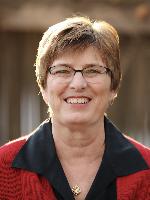



Challenge/Solution: School districts in Kansas and across the nation are facing unprecedented challenges with teacher shortages including teacher attrition, lack of certification, and trouble filling vacancies. For instance, special education teacher vacancies continue to be an identified need and severe teacher shortage area in all states (US Dept of Education, 2017). Students in high poverty and high minority settings bear the brunt of teacher shortages. The Kansas State Department, in partnership with the University of Kansas have endeavored to find cost-effective solutions that do not sacrifice the integrity of adult learning best practice. Virtual instructional coaching has become a lifeline for many school districts and teachers who either have geographical or economical constraints that prevent them from accessing effective professional learning. Virtual coaching provides educators access to experts who can conduct coaching sessions, perform in-depth classroom observations, provide feedback, and brainstorm individual student learning needs, all via free video conferencing and a video analysis platform without limitations placed on schools surrounding distance and/or available personnel.
In order to ensure that coachees experience an equal or better coaching experience as what they would experience with an on-ground coach, VECTOR, which is an acronym for six phases of virtual coaching: Verify perspectives, Examine influence, Commit to Change, Take action, Operationalize performance, and Reflect/recommit can be used to guide new and experienced virtual coaches. Participants in this session will experience all six phases and the various strategies and technology solutions needed to ensure that virtual instructional coaching results in a powerful professional learning outcome. They will hear from veteran virtual coaches as they compare their on-ground and virtual experiences and the methods and strategies that have worked best, virtually.
Coaches, administrators, and educators will find value in examining their practice through a virtual lens. Current e-coaching, virtual coaching, or on-ground coaching programs will find value in the exploration of time management, physical and virtual space preparations, and recommended uses of technology, which can be transferred and used in one form or another to other contexts. Session participants may be trying to determine if aspects of current on-ground coaching could benefit from partial or even all activities going virtual and the VECTOR model can help bolster progress. Many on-ground coaches across the nation are spending time traveling between sites and are unable to meet as frequently or as long as they would like due to time spent in a car. Even if attendees determine that virtual coaching cannot be accomplished in their context immediately, this session will help participants begin to build an argument for introducing virtual coaching into their context in the future.
Technology Interventions: This virtual coaching model uses technology to support coach and coachee understanding of the learning environment, set goals, and provide professional learning based on student performance data, evidence-based practice and technology solutions. Our instructional coaches use Zoom for our video conferencing solution, as well as YouTube, GoReact, Torsh, and Swivl platforms to perform video-based observations. The technology is agnostic and the model, strategies and best practice shared can work within any video conferencing and video-based observation platform. For this session, additional technology solutions will be shared including the use of Padlet and Google Docs or similar collaborative, free, open and available tools that can be used on-ground or online.
Model & Strategies Employed: The strategies and methods to be shared were born out of necessity, and help provide a feasible solution to many barriers traditional PL and face-to-face coaching have been unable to overcome, including barriers of time, money, and geographic isolation. As shown in the outline below, we will guide participants through three areas where virtual coaching requires special consideration and how VCs have effectively navigated those differences. In addition, participants will have access to a free database populated with coach and coachee tips, tricks, resources, and tools to support each phase of VECTOR and will be available to session attendees.
Evidence of Success: Through surveys, coachees shared how the focused, personalized professional learning built their capacity in literacy instruction and thus, increased the capacity and sustainability of professional learning in their school and district. The majority of coachees requested to continue into the following academic year, three years running. Indeed, the overall program was so successful that in year two, there was a tri-fold increase in both virtual coaches and coachees. Surveys with coachees, interviews and annual log data from coaches, as well as interviews with administrators will be shared. In addition, for the last two years, we have sustained the network created through grant funds due to coachee requests.
1. Introduction and session format description (2 minutes)
Participants will be encouraged to open the online handout and be introduced to the virtual coach presenters, the free VECTOR Collection website, and the research guiding our efforts.
2. Why VECTOR? (7 minutes)
The virtual coaches (VCs) will introduce how a virtual coaching model was born from necessity and why it has proven to be effective.
3. Theory of relativity and how it pertains to virtual coaching, coaches and coachees (2 minutes)
Connection will be made to Einstein’s theory of relativity between space and time and how well it translates to virtual coaching. We also add the technology continuum to the formula.
4. Time continuum (8 minutes)
The VCs will share real-life examples of how time is saved, managed and given through virtual coaching. Attendees will be asked to consider where they fall on the time continuum and how the recommendations presented may be applied upon their return home to help them get to where they want to be in their own coaching context.
4. Reflection (2 minute)
Attendees will be encouraged to crowd-source, swapping additional ideas and resources with other neighbors and crafting easy action steps to support implementation of new ideas into their own educational settings. Participants will be encouraged to post their reflections on a Google Doc in order to maintain a repository of ideas and resources shared.
5. Space continuum (8 minutes)
The virtual coaches will share the need to manage both the physical and virtual spaces for which they operate. They will share strategies, tips and tricks for preparing for, conducting, and following-up on virtual sessions. Virtual coaching is flexible for when to meet, but usually the length of time is limited to the availability of the coachee, so sessions need to be effective and efficient. Proper preparations ensure the interaction of space and time works for the coach and coachee.
6. Reflection (2 minutes)
Attendees will be encouraged to crowd-source, swapping additional ideas and resources with other neighbors and crafting easy action steps to support implementation of new ideas into their own educational settings. Participants will be encouraged to post their reflections on a Google Doc in order to maintain a repository of ideas and resources shared.
8. Technology continuum (8 minutes)
Virtual coaches have to determine what technology works best for each aspect of coaching. Tips will be given for each stage of VECTOR and how synchronous, asynchronous, storage and sharing are managed to best facilitate successful coach/coachee interactions.
9. Reflection (2 minute)
Attendees will be encouraged to crowd-source, swapping additional ideas and resources with other neighbors and crafting easy action steps to support implementation of new ideas into their own educational settings. Participants will be encouraged to post their reflections on a Google Doc in order to maintain a repository of ideas and resources shared.
11. Summary of Session and Ensure Participant Access to Resources (2 minutes)
12. Participant Questions (8 minutes) Questions and whole group discussion.
Funding cuts have disproportionately affected high-needs schools, and have caused budgets for teacher PL to be drastically reduced or to be cut entirely (Yadavalli, Waldorf, & Florax, 2017). Recently, the Westat Equity Team found that “thirty-five states identified insufficient educator support and professional development as a root cause of equity gaps” (Williams, Adrien, Murthy, & Pietryka, 2016). Even more compelling is research stating that without job-embedded, personalized, ongoing support that includes classroom observations and feedback, transfer from knowledge to practice rests at an abysmal 10-15%, compared to 80-95% transfer for PL that includes those features (Tkatchov & Pollnow, 2012). These specific features were among those recently confirmed in a 2017 study from the Learning Policy Institute, which identified seven key features typically present in effective professional development (Darling-Hammond, Hyler, & Gardner, 2017). The seven features include: (1) A focus on content; (2) Incorporation of active learning; (3) Collaborative opportunities; (4) Use of models of effective practice; (5) Coaching and expert support; (6) Opportunities for feedback and reflection; and (6) A sustained duration (Darling-Hammond, et. al., 2017). Unfortunately, the task of ensuring these seven features are present in teacher PL usually falls to one or two administrators who have many other responsibilities – including student safety, state and federal compliance, and discipline, to name a few.
As Internet access has become more ubiquitous and teachers have sought out new strategies and methods for engaging learners (Hough, Smithey, & Evertson, 2004), the cost challenges of providing high-quality in-person professional learning for teachers in particular may accelerate a more widespread and centrally-organized use of online learning experiences in schools and districts (Kraft, Blazar, & Hogan, 2016). “The lack of any statistically significant differences in effect sizes between in-person and virtual coaching suggests that virtual coaching models may be able to maintain quality while increasing scalability. This finding is consistent with Powell et al. (2010), who did not find any meaningful differences in outcomes across teachers randomly assigned to an in-person coach versus a coach who met with teachers virtually (573).”
It is important to note that while the overall program was designed to reflect the specific features needed for effective professional development (Darling-Hammond, et. al., 2017) this session is also designed to model effective PD. Due to the nature of the conference, the content is technology-centric and it cannot necessarily be ongoing (although participants can join the social network to engage beyond the conference), but we are purposefully incorporating active learning, collaborative opportunities, the use of models of effective practice, expert support, and opportunities for feedback and reflection.